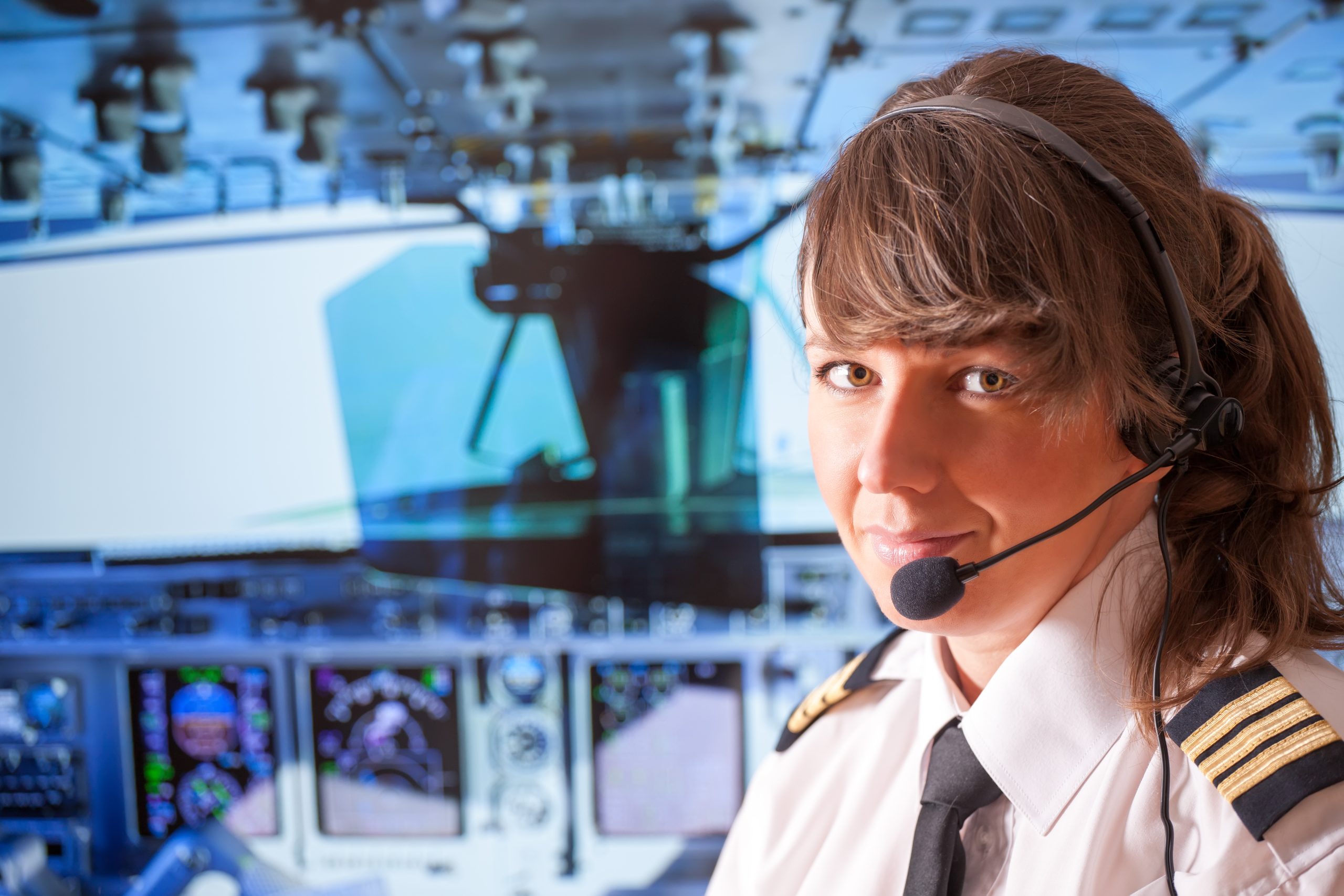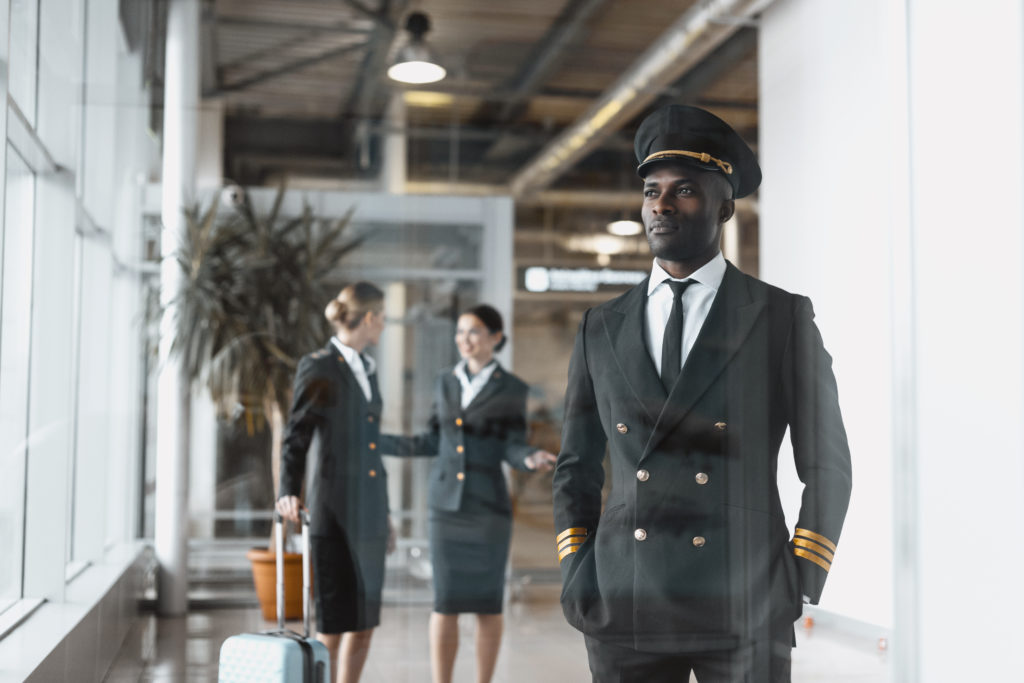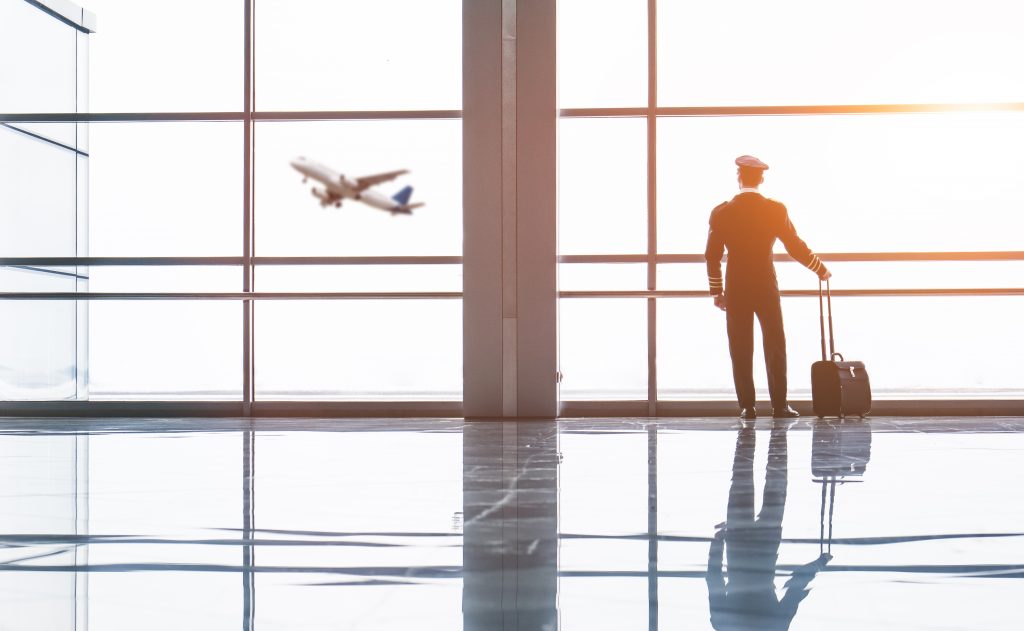
With a goal to become an airline pilot, your sights are set high. Becoming a pilot takes hard work and training. But what degree do you need to be a pilot?
The Federal Aeronautics Administration (FAA) doesn’t ask for a college degree to work as a pilot, but a potential employer might. The FAA wants to see that a pilot has ground and flight training. A pilot certificate, too, doesn’t hurt. But employers look for a degree and training.
So, if you’ve always dreamed of flying and want a job with a commercial airline, there are majors for pilots that can get you closer to your goals.
In this article, we discus the schooling to be a pilot you need to land your dream job. We cover the:
- Best pilot degrees
- Best pilot major
- Licensing for pilots
We also cover how much money an airline pilot can make and where to find the best jobs. Read on to find out how to become a pilot.
Best Degrees for Pilots
What degree does a pilot need? There are different bachelor’s degree paths to become an airline pilot. If you want to fly a plane, you need ground and flight training. But before training and flight school starts, an aspiring commercial pilot needs a degree.
But what do pilots major in and what degree do you get?
Since the FAA doesn’t require a degree, some pilots don’t have them. But with fierce competition for jobs, most students earn degrees. The top degree of choice? Bachelor’s degrees.
Bachelor’s degrees can help you get into flight school or land a job as a commercial pilot. A degree can help you soar above your competition and make your application stand out.
What Do Pilots Major In?
What are the best majors for pilots?
If you want to earn a bachelor’s degree before becoming a pilot, there are many different majors you can choose. Below are possible majors to consider.
- Aeronautical science
- Aerospace engineering
- Aviation
Do you need a college degree to be a pilot? The short answer is no. But, as stated above, employers prefer them. Even if you want to be a private pilot. So, why limit your career choices?
Below we talk about the top degrees for becoming a pilot. Read on to find out which degree interests you and why a degree is important for your career as a pilot.
Bachelor’s in Aeronautical Science
A degree in aeronautical science won’t teach you how to fly a plane, but it will show you how aircraft works.
In this program, you learn how planes operate. You also learn what keeps them in the sky. You can use your skills to become a commercial pilot or airline transport pilot. You can also become an air traffic controller or mechanic because the skills you learn are versatile.
But if you do plan to become a pilot, or private pilot, you will need flight hours after you earn your degree.
The courses you take in an aeronautical science program include:
- Aircraft engines
- Aviation law
- Flight safety
- Jet transport systems
Aeronautical science is one of those pilot majors that gives you unique skills and training. It provides different career options if you change your mind and decide piloting is not for you. But if you want to be a pilot, you will need a pilot’s license. To get this, you need hours of flight time and a pilot certificate.
Later in this article, we discuss commercial pilot certificate options and getting your pilot’s license.
Bachelor’s in Aerospace Engineering
You can earn either a BS or BA in Aerospace Engineering. This degree teaches you different aspects of mechanical and aerospace engineering.
Employers favor earners of this degree because there are only a small number of programs in the US. NASA and other space-related organizations look for candidates with an aerospace engineering background.
But the degree is rigorous. It covers many math and physics topics. You take courses in:
- Dynamics and control
- Intro to engineering
- Space mechanics
Upon graduation, you will need flight hours to work as a pilot. But the skills you gain will help you stand out above your peers when competing for a pilot job.
Bachelor’s in Aviation
The most common degree for pilots is a bachelor’s in aviation. Some schools offer a BS in Aviation, while others offer a BA in Aviation degree. Either can help you become a pilot, if you have hours of flight time and a pilot’s license.
In an aviation program, you take courses such as:
- Electronics
- Engineering
- Flying aircraft
- Safety
You also learn about aircraft maintenance and airport management. Once your finish your classroom work, you enter flight school to complete your flight hours. Your flight instructor will help you earn hours of flight time so you can get your pilot licenses.
During the last two years of the program, you must get an internship with a commercial airline or a flight company. An internship can lead to employment for some students.
Do you need a degree to be a pilot? No, but having one can help. You can major in anything aviation-related. You can also study a different subject. But to become a pilot, you need training and flight hours.
Considering different majors for pilots? Look at schools and programs accredited by the Aviation Accreditation Board International or AABI.
Pilot Licenses
Now that you know about the schooling to be a pilot you need, it’s time to talk about the next step. For aspiring pilots, the real education happens in flight school.
To become a pilot, you must complete hours of training with a flight instructor. This is true if you want to become a private pilot or commercial pilot.
Some aviation programs offer flight training, but most four-year colleges do not. To be a pilot, you need both ground and flight training.
Flight training teaches you about:
- Aircraft features
- Dynamics
- Flying techniques
- Procedures
- Safety for crew and plane
In flight school, students get hands-on training. You fly alone, supervised, and on cross-country trips. You also get night flying experience.
But beyond flight hours and flight schools, aspiring pilots gain licenses and ratings. These help launch a commercial pilot career. Most students begin their pilot career with a student pilot certificate. Then they earn a private pilot license.
Each certificate and rating requires a written test followed by a practical flying exam. This is known as a “check ride.” Check rides take place in a plane that the prospective pilot flies.
Benefits of Ratings for Pilots
Once you earn a private pilot license, you can get an instrument rating. You need this before you become a commercial pilot. The Federal Aviation Administration (FAA) issues the rating. With this private pilot license, you can fly professionally.
Ratings help you:
- Fly an aerial tour
- Perform crop dusting
- Pilot a charter flight
To qualify for work as an airline pilot, you need your student pilot certificate. This goes for private pilot work, too. You can also earn an Airline Transport Pilot Certificate. You get these credentials after you complete flight school and thousands of hours of flying. You can also earn a multi-engine rating. Pilots get this rating if they want to be an airline transport pilot.
For every level of pilot license and rating, you must pass ground and flight tests. You can also earn a Certified Flight Instructor (CFI) rating after earning a commercial pilot license. This credential allows you to work as a certified flight instructor. You gain more experience in flight schools with this option because you spend more time flying solo.
Since professional airline pilot positions are competitive, you need the right training and schooling. But for those who have a passion for flying, few careers offer the same excitement and travel that a career as a pilot does.
Qualities Every Pilot Should Have
What do you need to be a pilot? Schooling, training, and hours of flight time. But you should also know what qualities make a pilot successful. Because the best ones have more than a pilot certificate or private pilot license.
The role of an airline pilot is like no other job. The job demands an ability to focus that few people have. It also requires certain qualities that you don’t always pick up in flight school.
Here are some important qualities you need to become a pilot.
Become a Pilot with Effective Communication Skills
An airline pilot must speak clearly when they deliver information to flight crew members and air traffic controllers. They also must listen to instructions.
From changes in flight plans to weather reports, a good pilot listens for direction. Having strong communication skills helps you operate your plane and manage your crew.
Become a Pilot with Observational Skills
As an airline pilot, you must be observant. When you fly a plane, you watch over dials, gauges, and screens. Doing so ensures all systems work the way they should.
Your good observational skills help you maintain situational awareness. You’re able to watch for other aircraft or obstacles. You need clear vision, both color and depth perception. You also need to judge distances between objects.
Become a Pilot with Problem-Solving Skills
You gain problem-solving skills in flight school. You put these skills to the test on the job. When a plane hits turbulence, or weather conditions impact a flight, you must come up with solutions to problems.
You need to know when to reroute a plane or change altitude to avoid an issue. You must also inform air traffic control of the problems you face. To do these tasks, you should be good at solving problems.
Become a Pilot with Quick Reaction Time
Want to become a pilot? You need more than a commercial pilot certificate. You need quick reaction time. When danger occurs, you need sound judgment and the ability to think fast. Quick reaction times help you do your job as a professional pilot.
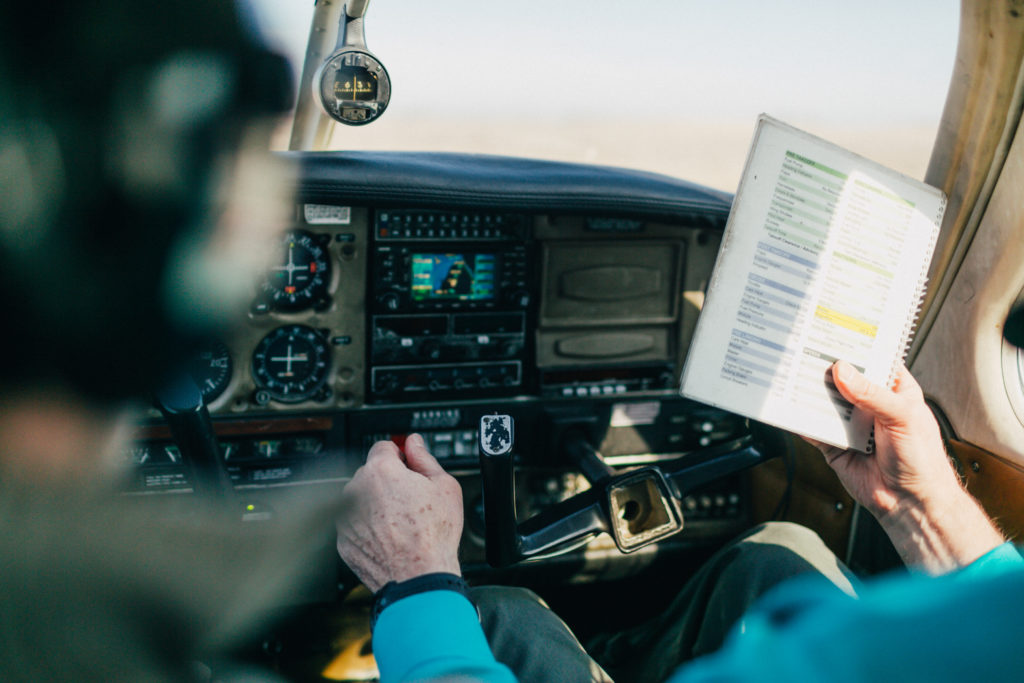
Job Outlook for Pilots
Now that you know about flight school and the kind of commercial pilot certificate you need, it’s time to learn about airline pilot job growth. The Bureau of Labor Statistics (BLS) reports jobs for airline and commercial pilots will grow 13% through 2030.
Air transportation workers will see a 19% growth, and copilots will see 14% in growth. Because of this growth, it is a good time to pursue a career as a professional pilot.
Growth should occur as a result of the need to replace workers who retire. Growth will also occur due to recovery efforts from the COVID-19 recession. With sharp declines in 2020 in both business and leisure travel, demand for air travel is on the rise.
But to find the best job prospects, you must have the qualifications. Entry-level requirements for pilot jobs with regional airlines are lower than international airlines. You will face less competition.
If you want to work with a large airline, you must prove yourself to a potential employer. Major airlines receive many more applicants than their number of job openings. As a result, you must stand out among other applicants.
So, what do you need to be a pilot? Here’s a short list on how to attract employers.
How to Attract Employers
- Have an accredited degree
- Complete flight training
- Get a commercial pilot certificate
- Receive ratings and aviation programs awards
Advanced degrees and a commercial pilot’s license offer the best job prospects.
Money You Can Earn as an Airline Pilot
Pilots earn average wages of $160,970/year. The lowest 10% of earners make less than $81,000/year. But the highest 10% earn over $208,000/year.
You make more money with experience. For instance, pilots with seniority earn $10,000 more per year than those with less time on the job.
Once you’ve finished flight school and earned your pilot certificate, you can qualify for jobs in top-paying industries. The highest-paying industry for pilots is air transportation. This includes major airline companies. This industry pays pilots about $174,000/year.
The second-highest-paying industry for airline pilots is nonscheduled air transportation. An airline pilot in this industry earns about $117,000/year.
Other top-paying industries for an airline pilot include:
- Federal government: $111,500/year
- Support activities for transportation: $100,000/year
Top Paying States for Pilots
Where an airline pilot lives also impacts earnings. Pilots spend several nights each week away from home. They experience overnight layovers and delays. Because of changes in their flight assignments, some pilots want their home base near large airports. You find larger airports in states with the highest reported earnings for pilots.
The Bureau of Labor Statistics lists five top-paying states for pilots.
- Michigan
- Nevada
- Florida
- California
- Washington
These states offer above-average pay for pilots. For example, Michigan pilots make an average of $248,770/year. Nevada pilots earn about $236,000/year. Florida, California, and Washington also offer high earnings potential for a commercial pilot or airline transport pilot.
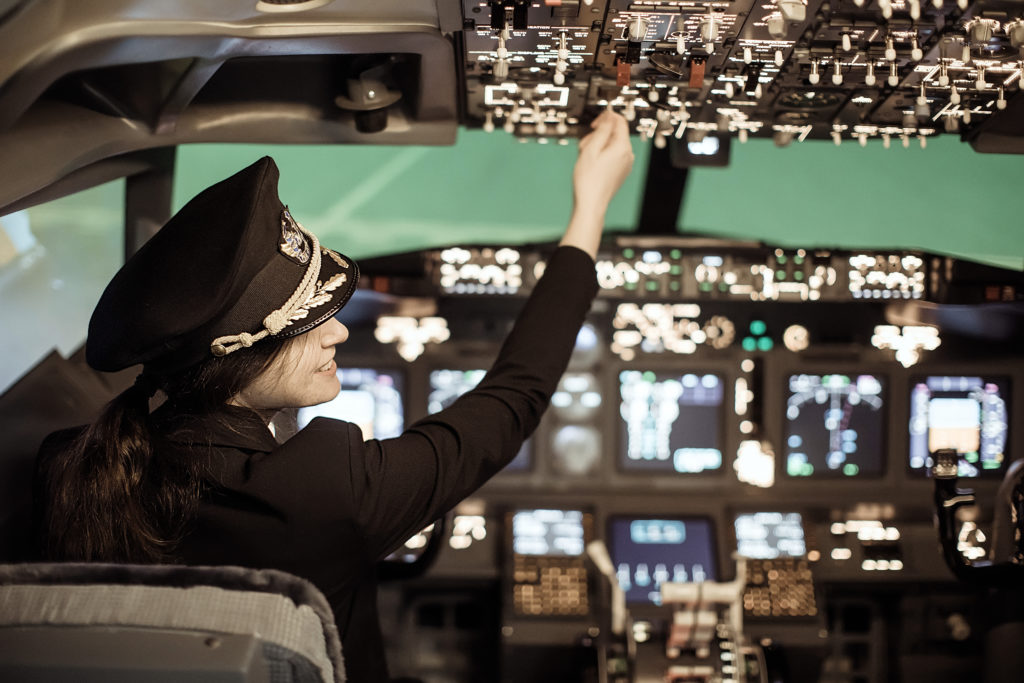
Certain cities also offer high wages for this job. The Detroit-Warren-Dearborn, Michigan metro area offers the highest annual wages for pilots. In this area, you can earn over $259,000/year.
You can earn high wages in other metro cities such as:
- Naples, Immokalee, and Marco Island, Florida: $254,640/year
- San Francisco, Oakland, and Hayward, California: $252,430/year
- Las Vegas, Henderson, and Paradise, Nevada: $241,140/year
With a professional pilot certificate and air traffic experience, you can also find high wages in:
- Miami
- Seattle
- Denver
- Chicago
- Washington, D.C.
High Paying Non-metro Areas for Pilots
High pay in non-metro areas is not as common as in metro areas. But you can earn high wages in:
- Alaska non-metro
- Southeast Alabama
- Northeast Mississippi
While wages are much lower in non-metro areas than in metro areas, six figures are still possible. For example, Alaska non-metro pilots earn about $112,000/year. Southeast Alabama pilots also earn wages of about $108,000/year.
Large Employers for Airline Pilots
Airline pilots, copilots, and flight engineers hold 85,500 jobs. Commercial pilots hold about 41,600 jobs.
Scheduled air transportation is the largest employer of pilots. This industry employs 86% of all airline pilots, copilots, and flight engineers.
The second-largest employer of pilots is the federal government. This does not include the postal service. The federal government employs four percent of pilots. But to work in this industry, you will need to finish flight training with a flight instructor and earn your pilot certificate.
The Bureau of Labor Statistics reports support activities for transportation and nonscheduled air transportation as the next largest employer for pilots. This industry employs about two percent of all pilots.
Large Employers for Commercial Pilots
Nonscheduled air transportation is the largest employer of commercial pilots. This industry employs 28% of all commercial pilots.
Technical and trade schools are the second-largest employer for this job. About 12% of pilots work in this industry.
Support activities for air transportation and ambulance services each have about 10% of all pilots. But to become a pilot in these industries, you need a pilot certificate and training. Some pilots even have a bachelor’s degree and training.
The manufacturing industry has about 3% of pilots. This is the smallest employer of commercial airline pilots.
Work Life and Schedule for Airline Pilots
The work place of an airline pilot is unique. Your office is a plane. Your work takes place during flights.
Airline pilots spend an average of 75 hours/month in flight. They spend another 150 hours doing other duties such as:
- Examining weather conditions
- Preparing flight plans
As a professional pilot, you work different schedules. You may work many days in a row followed by several days off. You might also work weekends and holidays.
Your get your flight assignment based on seniority. This means that working an extended period of time for one airline can earn you a preferred flight schedule and route. While some pilots move around from airline to airline, most like to stick with the same one. Better routes and schedules are important to a seasoned pilot.
To become a pilot and qualify for the best airline pilot jobs, you need the following:
- Flight school training
- Pilot certificate
- Pilot license
You also need the right schooling to become a pilot. This can include a bachelor’s degree and flight school. It can also include flight training to get your commercial pilot license. The training you get depends on which type of pilot you want to be.
BDP Staff
November 2022
Related Resources:
- 30 Best Online Engineering Degrees
- 30 Great Degree Programs for Working Adults
- 30 Great Small Colleges for STEM Degrees
- High Paying Electrical Engineering Jobs
- 30 Best Online Bachelor’s in Information Technology Degrees
